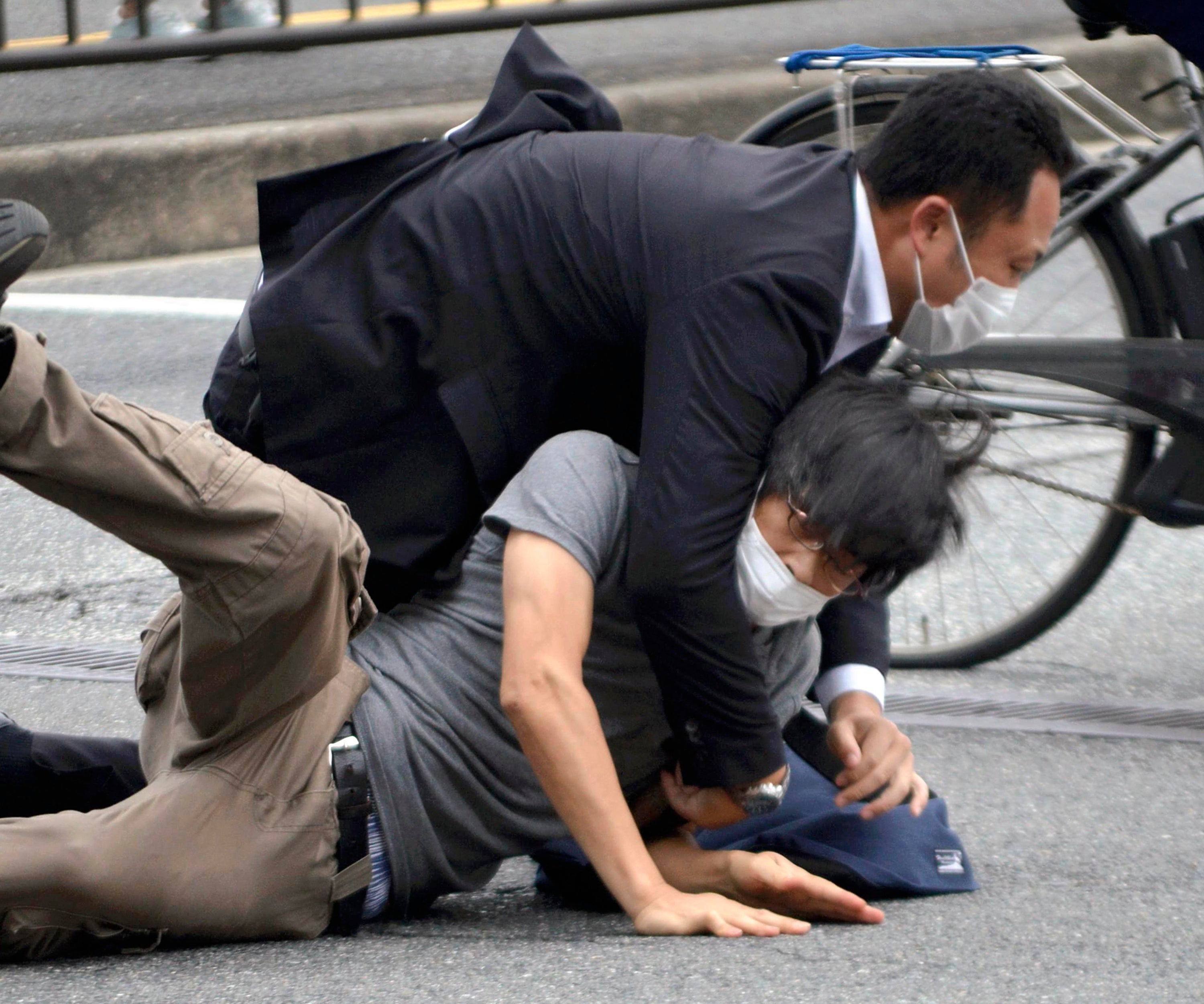Japan to launch ‘lone actor’ spotting scheme in wake of Shinzo Abe’s assassination
Data on ‘individuals deemed particularly dangerous’ by police will be gathered for pilot scheme

Your support helps us to tell the story
From reproductive rights to climate change to Big Tech, The Independent is on the ground when the story is developing. Whether it's investigating the financials of Elon Musk's pro-Trump PAC or producing our latest documentary, 'The A Word', which shines a light on the American women fighting for reproductive rights, we know how important it is to parse out the facts from the messaging.
At such a critical moment in US history, we need reporters on the ground. Your donation allows us to keep sending journalists to speak to both sides of the story.
The Independent is trusted by Americans across the entire political spectrum. And unlike many other quality news outlets, we choose not to lock Americans out of our reporting and analysis with paywalls. We believe quality journalism should be available to everyone, paid for by those who can afford it.
Your support makes all the difference.Japan is launching a pilot scheme to identify potential “lone actors” to prevent attacks like the assassination of former prime minister Shinzo Abe.
Local media reported that the initiative, which will be launched in August, was in response to Abe’s assassination and an attempted attack on prime minister Fumio Kishida earlier this year.
Japan’s National Police Agency (NPA) said on Monday that the pilot scheme would identify “potentially dangerous” individuals to mitigate any future attacks by “lone actors”.
Once the pilot is rolled out in August, it will be monitored and the results of the scheme will dictate whether it can be replicated in other jurisdictions, local media said.
This new initiative is part of a series of changes introduced in guidelines drawn up by Japan’s national police agency just ahead of the first anniversary of Abe’s killing.
The former prime minister was shot dead while giving a speech in Nara Prefecture on 8 July last year.
Earlier this year, there was an attempted attack on Mr Kishida as well. Both attacks were by individuals who had no affiliation with any crime organisation.
Speaking at an event where police chiefs all across Japan were gathered, NPA commissioner general Yasuhiro Tsuyuki said on Monday that the new guidelines – including those on “lone actors” – are “aimed at making the police as effective an organisation as possible by looking closely at changing circumstances and our present state”.
As per the pilot scheme, police in some jurisdictions will gather information on “individuals deemed particularly dangerous” during questioning or other investigative activities, the Kyodo news agency reported.
These officers will pass on this data to public security officials who will then access their threat level.
According to a study by Dr Kiriu Masayuki of Tokyo University, a “lone actor” – or “lone wolf” – attack is “an activity in which perpetrators, based on their personal ideology, in order to solve their own problems, kill or injure persons who are the cause or symbol of the problem, or destroy ‘organisations’ that are the cause or symbol of the problem”.
The study said “lone actors” don’t have a political or ideological view, their motives are “personal” and that they have a “sense of psychological stagnation and disappointment in the future”.
In January, Japanese prosecutors formally charged Tetsuya Yamagami, the suspect in Abe’s assassination, with murder.
The accused had written in a typed letter and tweets believed to be made by him that his mother made donations worth thousands of dollars to the controversial Unification Church, leaving him struggling with financial setbacks. He was four years old when his father had died by suicide.
“Though I feel bitter, Abe is not my true enemy. He is only one of the Unification Church’s most influential sympathisers,” he had written. “I’ve already lost the mental space to think about political meanings or the consequences Abe’s death will bring,” Mr Yamagami had further stated.
The church is said to have deep ties with Japan’s ruling party lawmakers and even with Abe himself, who had praised its emphasis on family values.
Several Japanese citizens had expressed their sympathy with Mr Yamagami and sought prosecutorial leniency for him. There were also suggestions of sending care packages to his detention centre to cheer him up, the Associated Press had reported.



Join our commenting forum
Join thought-provoking conversations, follow other Independent readers and see their replies
Comments